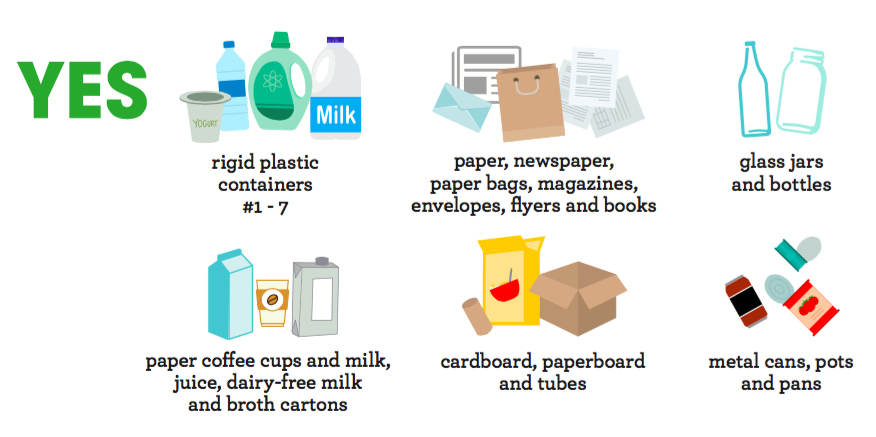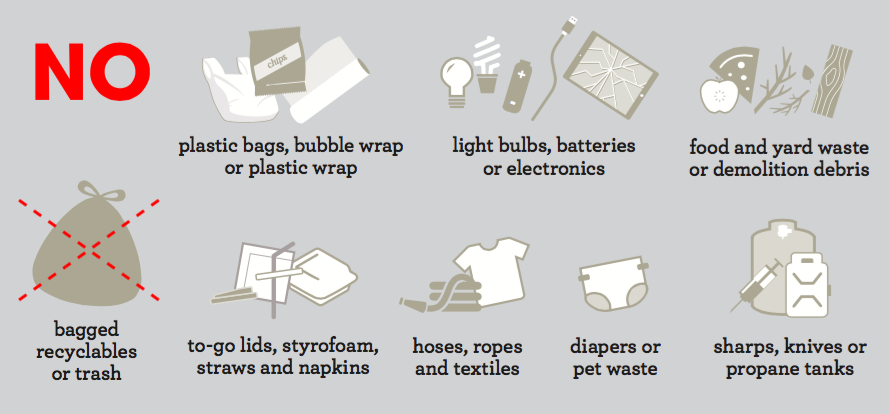The Town of Gorham and ecomaine have both begun initiatives to actively promote cleaner recycling to deal with unprecedented challenges that the regional recycling system has started to experience. Ecomaine, the local non-profit consortium which processes most of Gorham’s trash and recyclable material, has begun to educate the general public about better recycling practices. Gorham’s initiative includes messages on the Town website and Facebook page, as well as making free “Recycling Dos and Don’ts” flyers available to the public at the town office and the Public Works Dept.
The purpose of the Town’s efforts is to assist ecomaine in dealing with recent unprecedented financial pressures and difficulties with its recycling program, which has been in operation for nearly three decades. In particular, the Town is urging residents to make every effort to avoid placing non-recyclable items in recycling bins. These include: all types of plastic bags and plastic wrapping film (i.e. Saran wrap), as well as bubble wrap; to-go cup lids and all types of polystyrene (Styrofoam); all toys; sharp metal objects, and miscellaneous plastic pieces. In addition, all types of batteries, electronics, light bulbs, textiles, and all hoses, cords, and cables cannot be recycled through ecomaine, so they should not be placed in recycling containers.
Due to recent shifts in the global recycling market, there has been an unprecedented decrease in the price ecomaine receives for recyclable materials, such as paper and plastics. For instance, China was until recently the largest purchaser of recyclables from the US, but has virtually stopped importing these materials. Also, the global market for paper used in books, magazines, newspapers, and catalogs is continuing to shrink, due to the long-term transition to digital electronic devices.
Because the global bulk price for recyclable paper and plastics has dropped so low, and because bulk buyers are no longer tolerating as many waste-stream contamination issues, ecomaine has been forced to start paying significant premiums to the bulk buyers of its recyclables. Otherwise, those buyers would no longer accept ecomaine’s recyclable materials.
Ecomaine states that most of these larger-scale changes to the recycling marketplace are beyond its control and believes that the best thing they can do to mitigate these challenges is to inform the public about the importance of cleaner recycling practices. The company is also reminding everyone that their bulk purchasers will continue to penalize them financially if the materials they want to sell are contaminated by more than a certain amount of non-allowable materials (often, no more than 2% to 4% contaminants are allowed).
For more details on the need for cleaner recycling, please visit www.gorham-me.org or www.ecomaine.org.




